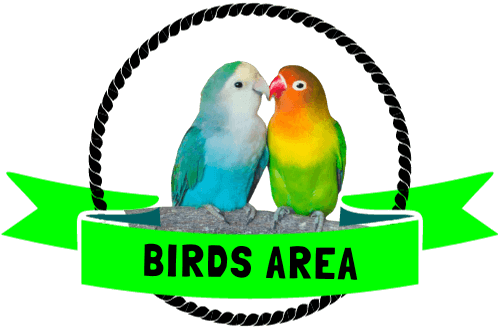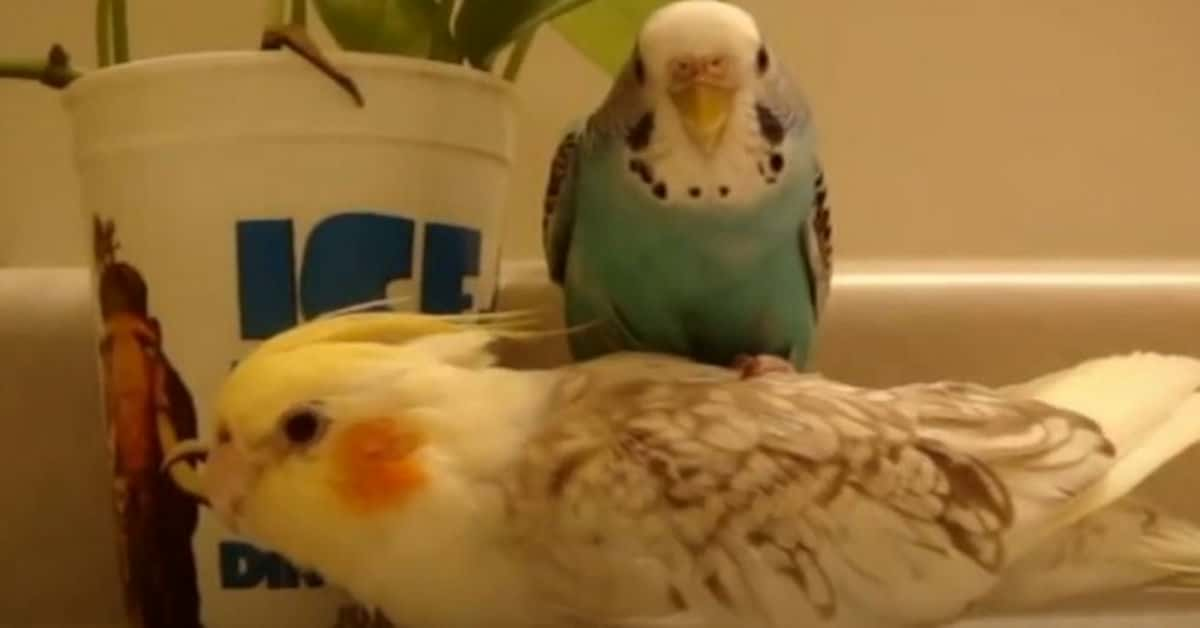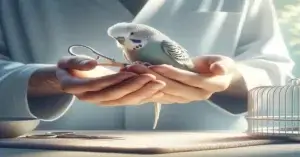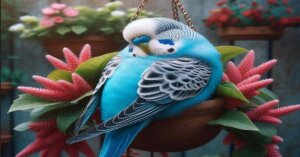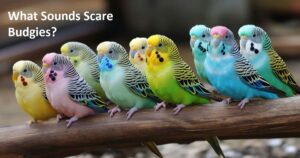Budgie And Cockatiel Hybrid
If you’ve got a budgie and a cockatiel, you might wonder if they can breed. The short answer is no. A budgie and cockatiel hybrid is not possible. Budgies and cockatiels belong to different bird species.
They are genetically too different to produce a hybrid. It’s like trying to mix a cat with a dog; it just doesn’t work. But there’s more to the story.
Let’s know why these two birds can’t create a hybrid.
Why Budgies and Cockatiels Can’t Have Hybrids
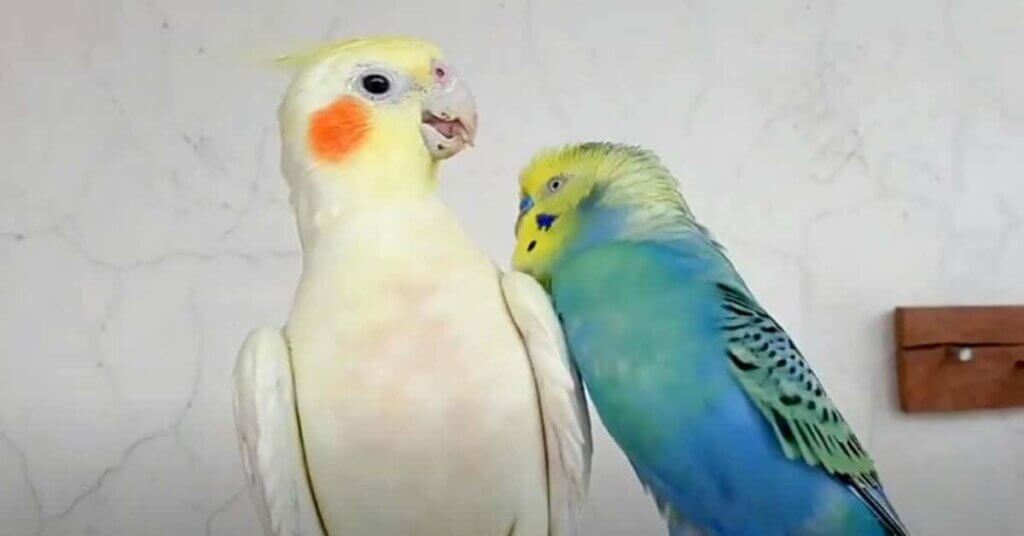
Budgies (parakeets) and cockatiels are both popular pet birds, but they are from different branches of the parrot family.
Budgies are part of the Melopsittacus genus, while cockatiels belong to the Nymphicus genus. This means they have different genetics, making it nearly impossible for them to produce offspring together.
Main Reasons a Hybrid Isn’t Possible
- Different DNA: Budgies and cockatiels have different numbers of chromosomes. This genetic difference is a big reason they can’t mate successfully. Even if they show mating behaviors, no baby birds will come from it.
- Mating Behavior: Sometimes, you might see a budgie and a cockatiel “pair up” and try to mate. This usually happens because birds form bonds, especially if they don’t have other birds of their own kind around. But mating behaviour doesn’t mean they will produce eggs or hatch chicks.
- Size Differences: Budgies are much smaller than cockatiels. Size can be a barrier during mating, making it even more unlikely for them to breed.
You can also read about Cockatiels vs Budgies to learn more.
What Happens If a Budgie Tries to Mate with a Cockatiel?
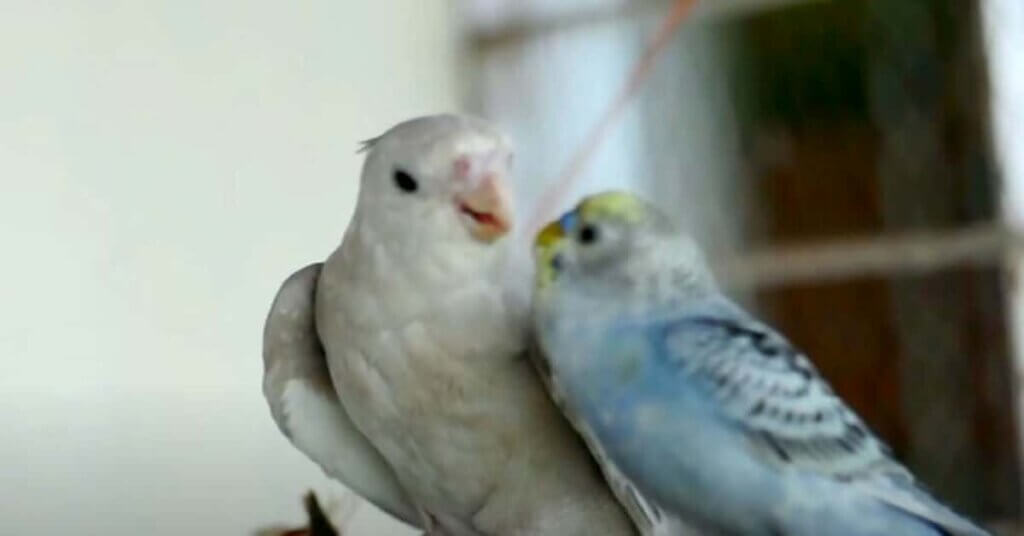
If a budgie tries to mate with a cockatiel, it usually results in nothing more than a display of bonding behavior.
These two birds may show signs of affection, like feeding each other, singing, or rubbing their heads together. This is a natural part of their social interactions and often occurs when birds of different species share a close environment.
However, despite these mating behaviors, they cannot produce offspring. Budgies and cockatiels belong to different species with distinct genetic makeups.
The genetic differences prevent them from successfully breeding. Even if they attempt to mate, no eggs will hatch, and no hybrid chicks will be produced.
In some cases, such attempts at mating can lead to stress or aggression, especially if one bird is not receptive to the other’s advances.
Observing their interactions and providing separate spaces if conflicts arise is essential to ensure their well-being.
Can Budgies and Cockatiels Live Together?
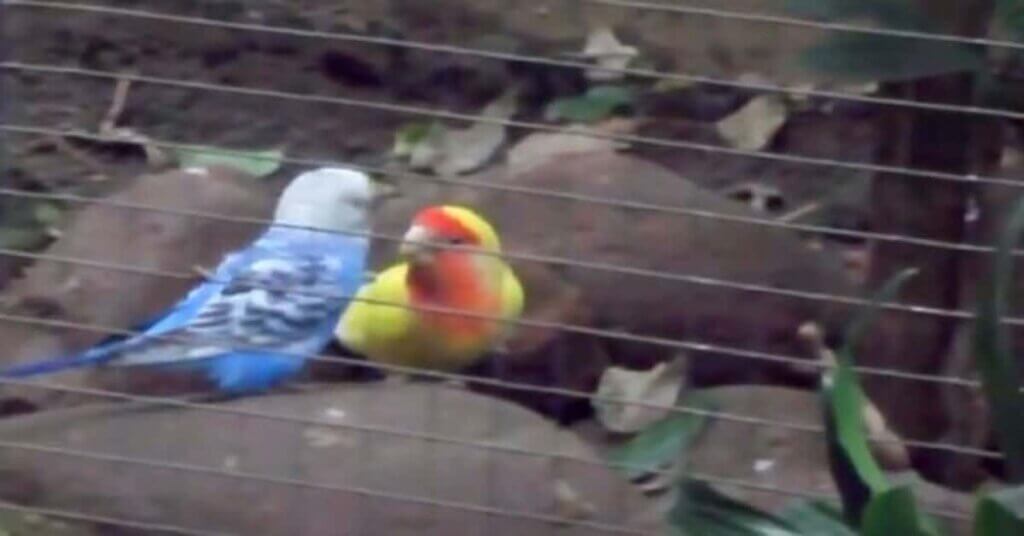
Yes, budgies and cockatiels can live together in the same space, but certain conditions must be met to ensure a harmonious environment. They are both friendly, social birds, which can make cohabitation possible.
However, there are key factors to consider for their safety and happiness.
Tips for Keeping Budgies and Cockatiels Together
- Cage Size: Make sure the cage is large enough to comfortably accommodate both birds. Each bird should have its own space to retreat to if needed. A cramped cage can lead to stress and territorial disputes.
- Separate Feeding Areas: Provide separate food and water dishes. Budgies can be quite active and may hog the food, which could cause stress for the cockatiel. Having multiple feeding areas ensures both birds have equal access.
- Supervised Introduction: Introduce them slowly and supervise their interactions. At first, place their cages side by side to let them get used to each other’s presence. If they seem curious and friendly, allow supervised out-of-cage playtime. Observe for any signs of aggression or discomfort.
- Monitor Aggression: Cockatiels are generally calm, while budgies can be more energetic and bold. Sometimes, budgies may become too bossy, leading to conflicts. If you notice aggression (pecking, chasing), it might be best to keep them in separate cages.
- Toys and Perches: Provide plenty of toys and perches to keep them entertained. This reduces the chances of boredom-related conflicts and helps them feel secure in their environment.
Even if they get along, not every budgie and cockatiel pairing will be the same. Some pairs become best friends, while others prefer their own space. Always be prepared to separate them if you notice signs of stress, such as excessive screaming, feather plucking, or hiding.
Common Myths About Budgie and Cockatiel Hybrids
Myth 1: “If they try to mate, they can have babies.”
Truth: Mating behavior does not equal successful breeding. Different species mean no babies.
Myth 2: “Cockatiels and budgies can create a new hybrid species.”
Truth: Species mixing only works in genetically similar birds, like some types of finches or ducks.
What If You Want a Hybrid Bird?
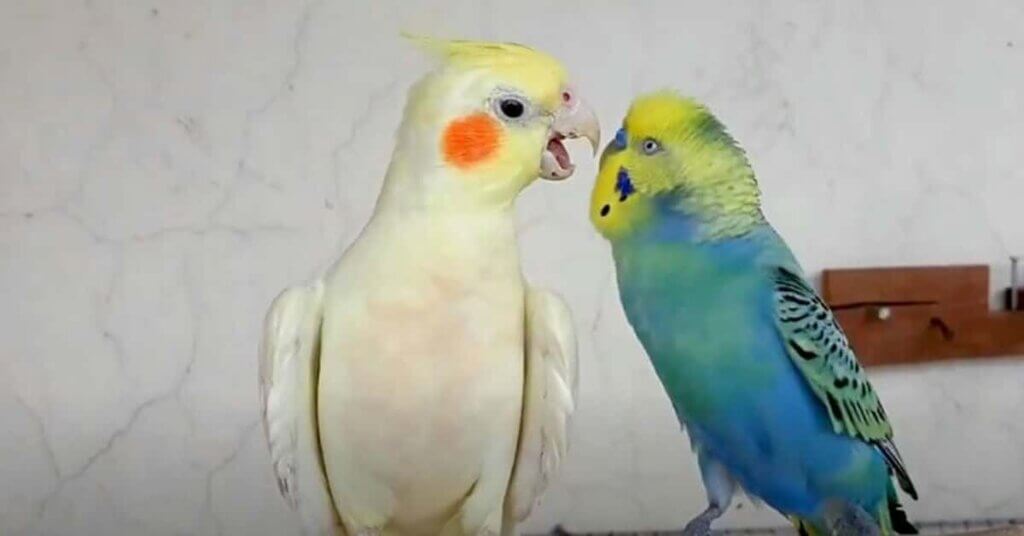
If you are fascinated by bird hybrids, consider birds within the same genus. For example, different types of lovebirds can sometimes create hybrids.
However, breeding birds is a complex and delicate process. It’s best left to experienced breeders who understand genetics, care, and bird welfare.
Fun Facts About Budgies and Cockatiels
- Budgies are one of the smallest parrots. They come in various colors, from green and yellow to blue and white.
- Cockatiels are known for their charming crests and whistling abilities. They are one of the most popular pet birds worldwide.
Frequently Asked Questions And Answers
Is It Better to Keep Budgies and Cockatiels in Pairs or Groups?
How Can You Tell If a Cockatiel or Budgie Is Male or Female?
Can a cockatiel eat budgie food?
Can I keep a single budgie with a single cockatiel?
Is It Easier to Train a Budgie or a Cockatiel?
Final Thoughts: Enjoy Their Unique Personalities
While a budgie and cockatiel hybrid isn’t possible, both birds bring joy in their own ways. Budgies are energetic and chatty, while cockatiels are gentle and affectionate. Instead of creating a hybrid, focus on providing a happy, healthy environment for both.
Summary: Key Takeaways
- No Hybrid: Due to genetic differences, budgies and cockatiels cannot produce hybrid offspring.
- Living Together: They can share a cage, but watch their behaviour to ensure harmony.
- Mating Behavior: Mating attempts are natural but won’t result in baby birds.
- Enjoy Differences: Celebrate their unique personalities and give them the care they need.
By understanding these lovely birds better, you’ll create a happier home for your feathered friends. Monitoring their interactions is necessary to ensure their well-being. Remember to prioritize the happiness and safety of both birds when considering a hybrid situation.
